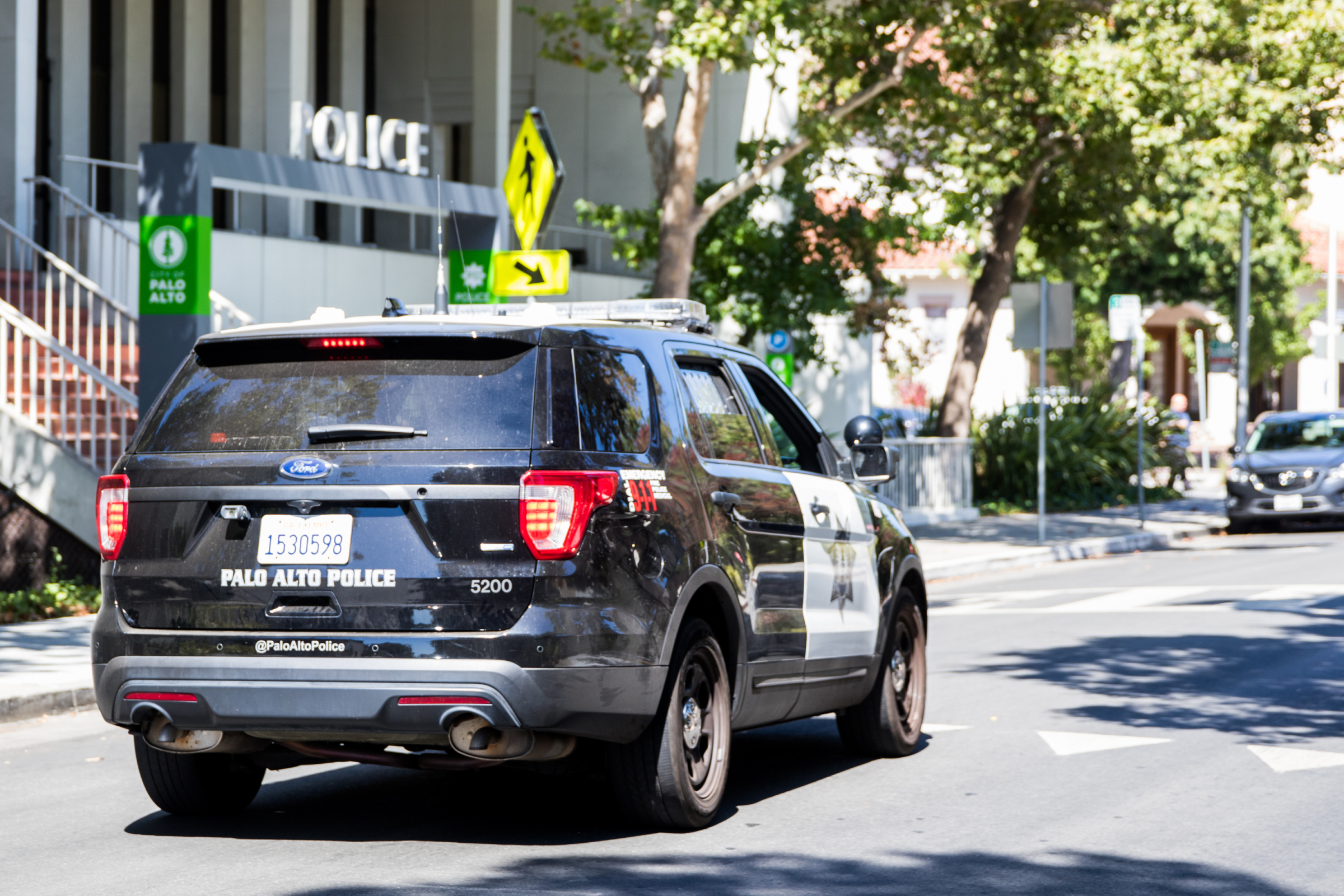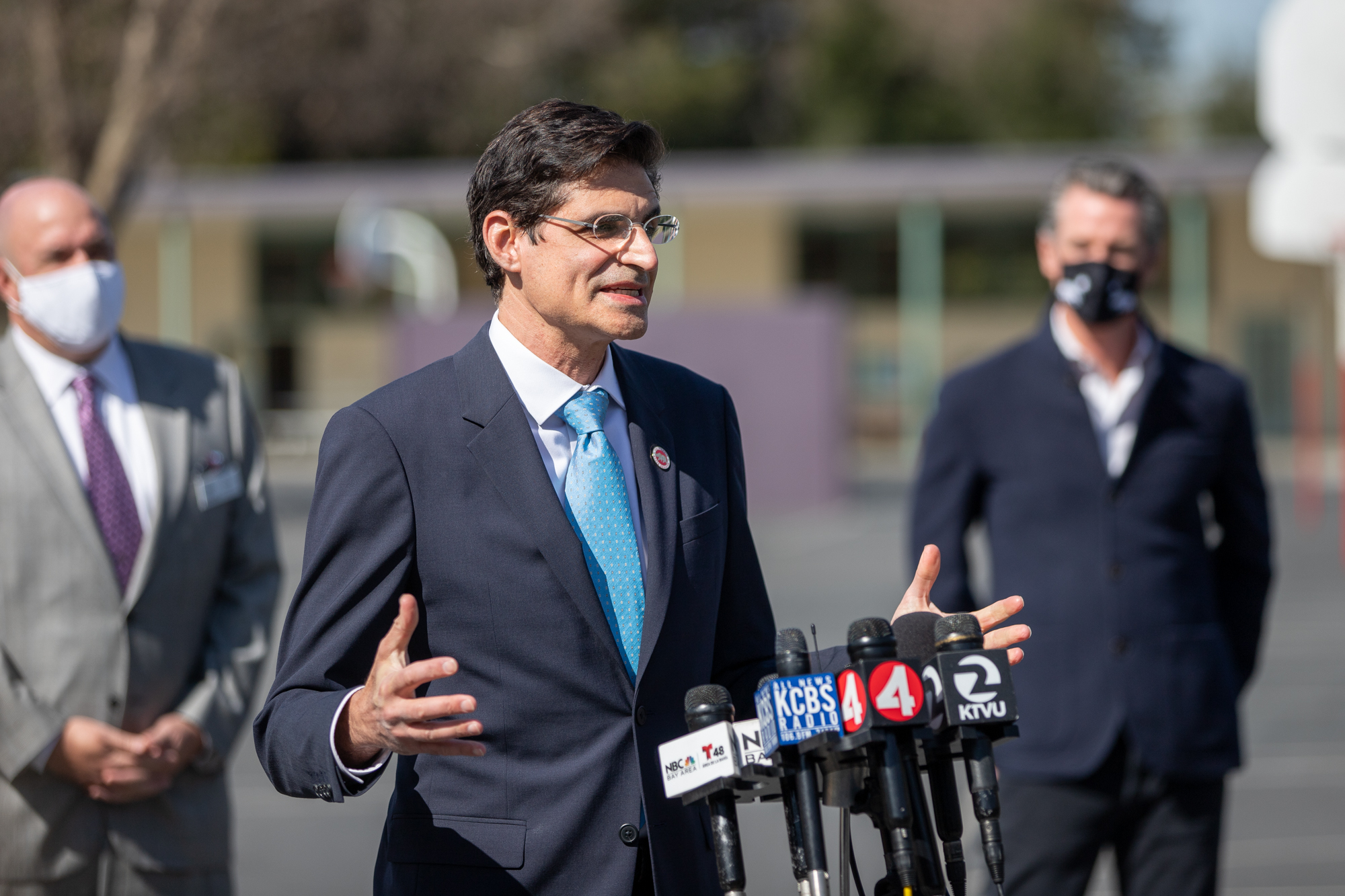A bill authored by Sen. Josh Becker, D-Menlo Park, that would require law enforcement agencies throughout California to find alternatives to encrypting their radio communications cleared its first hurdle Tuesday when the Senate Public Safety Committee voted to advance the legislation.
Becker's legislation, Senate Bill 1000, responds to a recent trend of police departments throughout the state moving to encrypted radio communications, a switch that makes it impossible for journalists and other residents to monitor police activities. Palo Alto, which switched to an encrypted channel in January 2021, was among the early adopters. Almost every other police department in Santa Clara County has since made the switch.
Becker's bill aims to reverse the trend and force law enforcement agencies to find alternatives to encrypted radios. If approved by the Legislature and signed into law, police departments would have to adopt policies that allow radio communications to be monitored while protecting personally identifiable information such as Social Security numbers, driver's license numbers and criminal records of individuals.
Like other departments, Palo Alto police said their switch to encryption was prompted by an October 2020 directive from the state Department of Justice requiring all police agencies that rely on the California Law Enforcement Telecommunications System (CLETS), a database used by law enforcement agencies across the state, to protect personal information. Under the directive, agencies were allowed to do so either by encrypting their radio communications or by adopting policies that protect the personal information, which could mean relaying this information by cellphone, computer or other means.
At a hearing Monday, Becker said that his bill is consistent with that order because it will require law enforcement agencies to protect personally identifiable information, as required by the Department of Justice. He argued, however, that full encryption is both unnecessary and harmful when it comes to protecting the residents' right to know what is happening in their communities.
"For 70-plus years, news outlets, journalists and the public have had access to this information, and it's critically important for transparency and accountability and for reporting public safety activities to the public," Becker said.
The committee voted 4-1 to advance the bill, with only state Sen. Rosilicie Ochoa Bogh, R-Yucaipa, dissenting. While she said she agreed with Becker that journalists play an important role in society, she argued that many police departments had already spent significant funds on encryption technology. Switching back would be "extremely costly and difficult for our police department to implement," she said.
She also argued that making police communication available to the public would allow "nefarious actors" to track police activities.
Other committee members — Chair Steven Bradford and Sens. Sydney Kamlager, Nancy Skinner and Scott Wiener — all supported the Becker bill, which will next go to the Senate Appropriations Committee.
Jennifer Seelig, director of news and programming at KCBS and board member at the Radio Television Digital News Association, testified on Monday that having access to the police scanner is critical for news organizations.
"We need to know what first responders are doing in real time," Seelig said. "The decision by a number of law enforcement agencies to fully encrypt communication greatly limits the ability of journalists to serve the public."




Comments
Registered user
Slater
on Apr 20, 2022 at 3:10 pm
Registered user
on Apr 20, 2022 at 3:10 pm
Thank you State Sen. Becker! I too believe there's a way to protect people's privacy at the same as promoting and requiring transparency of other information on the airwaves.
Registered user
Blossom Valley
on Apr 20, 2022 at 3:38 pm
Registered user
on Apr 20, 2022 at 3:38 pm
Based on police behavior around the country, it’s quite clear that “transparency” is in order. I support Senator Becker’s bill.
Registered user
Cuesta Park
on Apr 20, 2022 at 11:48 pm
Registered user
on Apr 20, 2022 at 11:48 pm
"Like other departments, Palo Alto police said their switch to encryption was prompted by an October 2020 directive from the state Department of Justice requiring all police agencies that rely on the California Law Enforcement Telecommunications System (CLETS), a database used by law enforcement agencies across the state, to protect personal information."
Let it be known that the STATE DOJ is ultimately responsible for the recent actions taken to reduce police transparency.
"Under the directive, agencies were allowed to do so either by encrypting their radio communications or by adopting policies that protect the personal information, which could mean relaying this information by cellphone, computer or other means."
Let me get this straight. Either A) use technology to automatically encrypt radio transmissions, or B) adopt a set of procedures which put an additional burden on police officers and a risk of failure in case of human error. It's easy to see why choice A is so appealing.
And all in the name of "protecting personally identifiable information such as Social Security numbers, driver's license numbers and criminal records of individuals."
IMHO, this is a case of the cure being far worse than the original disease. We need to end the encryption of police radio communications ASAP.